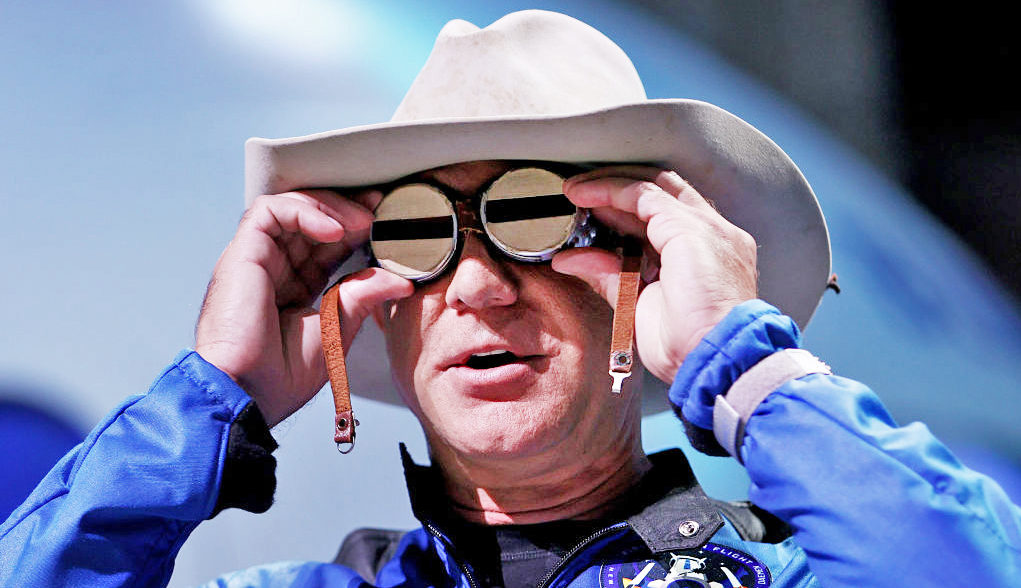Jeff Bezos has a plan for the human race — and it goes a lot further than next-day delivery. It’s all here in his recent interview with Ari Ignatius of Harvard Business Review, but the basic idea is that most of us should live in space.
This isn’t idle speculation on the part of the Amazon billionaire. Bezos is also founder of the Blue Origin spaceflight company. Like his rival Elon Musk, he’s striving to bring down the cost of putting people and things into orbit. If he succeeds, then the sky is no longer the limit. Though he’s realistic about what can be achieved in his lifetime, over the longer-term he’s confident that we can slip the surly bonds of Earth.
Two numbers dominate his thinking. The first is ten billion — which, at best, is the maximum population that can be sustained on Earth. The other number is one trillion — the number of people he thinks could live across the Solar System. But, where, exactly?
Bezos isn’t thinking of other planets like Mars, but purpose-built, space-based structures called O’Neill colonies. These would be cylindrical in shape and several miles long. By rotating they’d create artificial gravity. They could also be positioned near to Earth, allowing their inhabitants to return home from time to time — “the way that you would visit Yellowstone National Park,” he explained.
I’m not sure I’d want my planet turned into a visitor experience — or to live in a giant tin can. Earth is our species’ home and it is where we belong. Unlike Bezos, I can’t speak with any confidence on behalf of future generations, but I suspect that most of our descendants would feel the same way. Why wouldn’t you want the common grace of natural sunlight, air and gravity, instead of artificial substitutes?
The most telling moment in the interview was when Bezos was asked: “who gets to stay on Earth?” He may not have heard the question, but there was no direct response to it. If, however, we use his own numbers — 10 billion people on Earth and one trillion of us altogether, then the answer is literally the one percent.
Right now, getting into space is a rare and expensive privilege. But in the Bezos version’ of the future, it is living on the Earth that would be the premium experience — and presumably one that would have to be paid for.
Indeed, a pied-à-Terre may become the ultimate luxury purchase.











Join the discussion
Join like minded readers that support our journalism by becoming a paid subscriber
To join the discussion in the comments, become a paid subscriber.
Join like minded readers that support our journalism, read unlimited articles and enjoy other subscriber-only benefits.
Subscribe